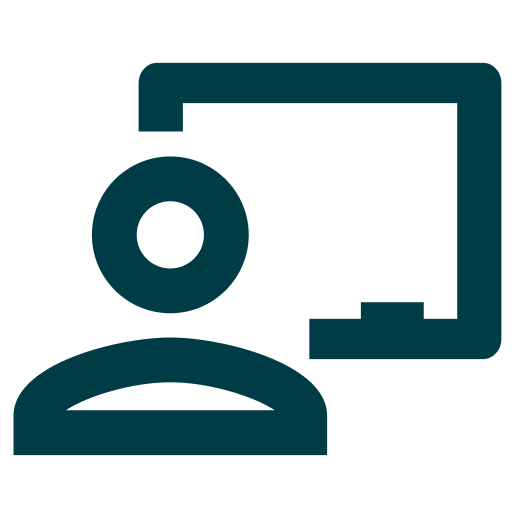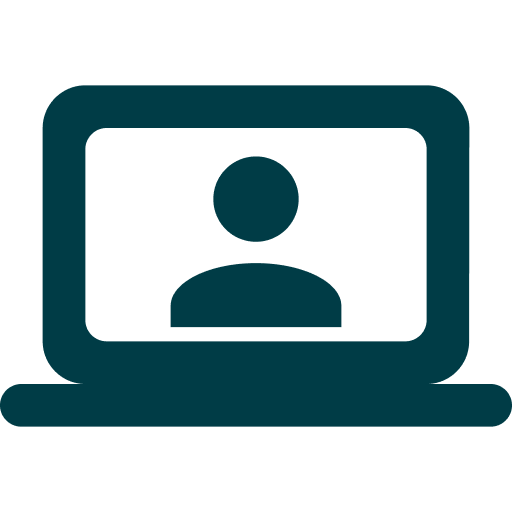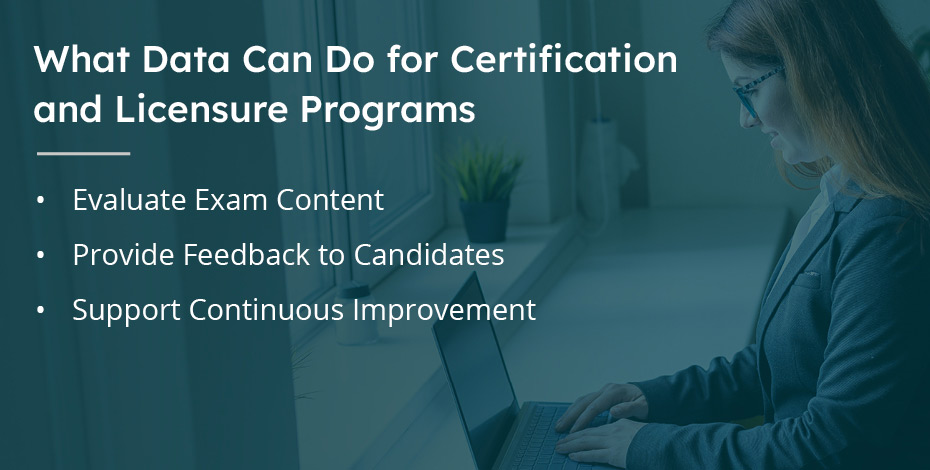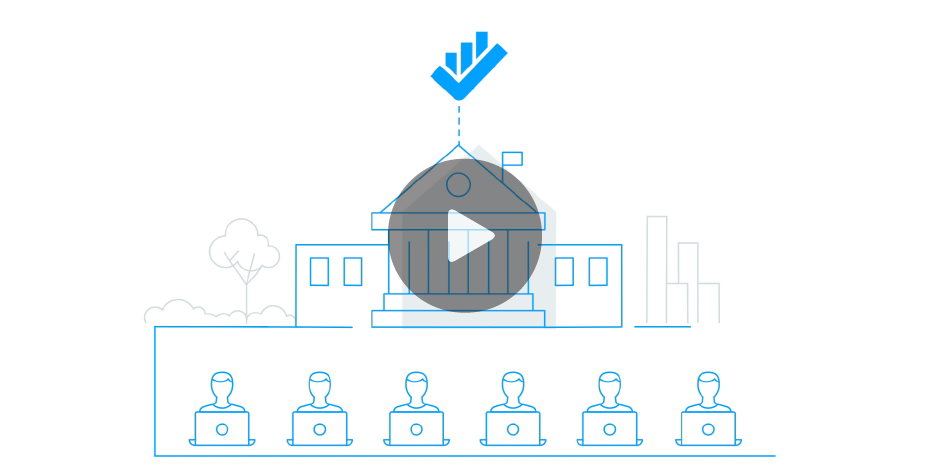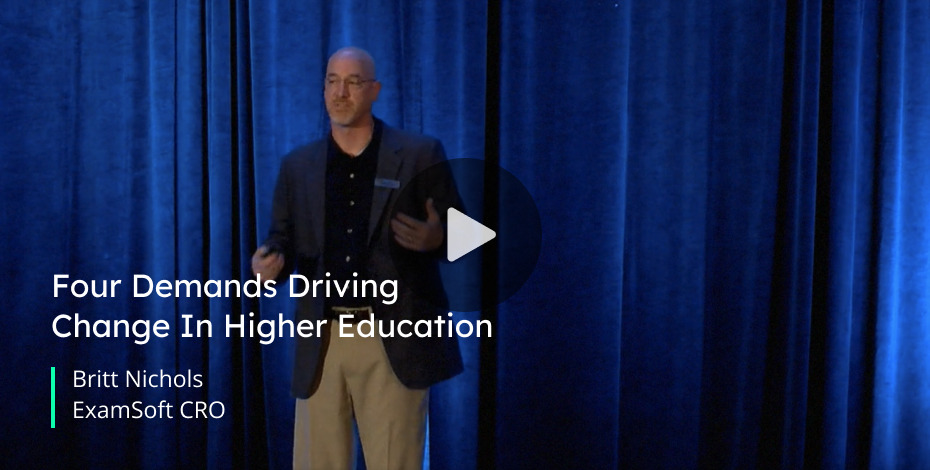Credentials like certifications and licenses not only give applicants a leg up when applying for a job, they are sometimes necessary to work in a particular field. There are hundreds of licenses and certifications, many with their own industry-specific standards. Despite their differences, many of these programs have in common the need for secure, flexible assessments and the data to analyze pass rates and exam content to ensure they’re certifying on the appropriate objectives.
While certifications and licenses serve similar purposes, there are distinctions between the two. According to Best Colleges, “Awarded by professional associations, companies, and independent organizations, certifications are standardized credentials that are intended to certify someone for work in a particular industry.” Professionals seeking entrance to a wide range of industries, from accounting to fashion, can earn certifications.
Licenses, on the other hand, “are normally issued by state governments.” Earning a license is often mandatory to work in certain fields, such as healthcare and law.
Both certifications and licenses have educational requirements, which could be a degree from a university or a professional training program. Some require a certain number of supervised work hours before a person can become licensed or certified.
No matter the industry or credential, assessment plays an essential role in the journey from student to practitioner.
Securing High-Stakes Assessment
To ensure program graduates are qualified to work in their chosen field, they must first pass a high-stakes exam. Certain certifications and licenses come with serious responsibilities and life-and-death consequences for ineptitude, protecting the integrity of these exams is of utmost importance.
Digital assessment can help certification and licensing providers uphold the value of their high-stakes exams and promote accessibility for every exam-taker. ExamSoft, a digital exam platform, offers additional security options such as remote proctoring and identity verification — affordable alternatives to live proctors. ExamSoft also locks down the exam-taking device to prevent examinees from referencing notes on that device. Beyond maintaining academic integrity, secure assessments ensure accurate data, which allows organizations to improve item quality and the exam itself. It prevents potentially unqualified practitioners from entering the field.
Certification entities that seek to provide a consistent testing experience for all candidates might consider an assessment platform that can deliver secure exams offline, remotely or in person, for groups large and small. Assessment browsers that require continuous internet access can inhibit equitable testing if the candidate’s connection isn’t reliable. And with the ongoing pandemic, the ability to deliver remote assessments securely is more important than ever.
Leveraging Assessment Data in Certification and Licensing Programs
No matter the field, data is key to improvement, and because licensing and certification cover such broad topics, data may be the most important factor in improving not only passage rates but the skills and knowledge of those professionals entering the workplace.
Competency Tracking
Many certification and licensing programs give feedback to their candidates after the high-stakes exam. This is where the need for actionable data reports comes in. A simple number on an exam doesn’t tell us much in many cases. A candidate who doesn’t perform well on an exam may not know which areas they need to work on for the next time. With detailed, post-exam reporting, test owners will know exactly where examinees struggled and where they did well, allowing them the option to share that data back to test-takers.
Longitudinal Data for Continuous Improvement
Thorough reporting can also streamline the process for certification and licensing programs seeking or maintaining accreditation. Different accrediting bodies have different requirements, but continuous improvement is always high on the list. With longitudinal reports, certification and licensing programs can demonstrate adherence to standards over time. An exam platform that can generate automated reporting with the click of a button saves programs the hassle of manually gathering and collating data for accreditation prep.
Psychometrics for Improved Exam Items
Some licensure and certification entities leave psychometric reporting to a third party, since many learning management systems and companies in the assessment space do not have the capabilities or psychometricians needed to improve exam items. An end-to-end assessment solution with psychometric reporting, gives programs the data they need to determine exam and item quality and make necessary adjustments.
How Certifying Bodies Are Using Data
Some certifying bodies use data to compare how candidates from different universities perform. They then provide feedback to those universities to support improved learning outcomes and passage rates.
ExamSoft for Certification and Licensure
ExamSoft’s all-in-one assessment platform can help certification and licensing organizations secure valuable exam content, deliver flexible assessments, and gain actionable data insights. ExamSoft’s identity verification and remote proctoring systems allow exam-takers to complete assessments from anywhere, at any time, and without the need for a live proctor or persistent internet connection. With advanced security tools to ensure exam integrity and the reliable assessment data that results, ExamSoft provides detailed reports to help organizations better understand both exam and item quality as well as candidates’ performance and competency. With easy-to-generate longitudinal reporting, ExamSoft can help organizations determine whether their exams are hitting the intended objectives.
Schedule a demo today to learn how ExamSoft can benefit your program.
Source:

